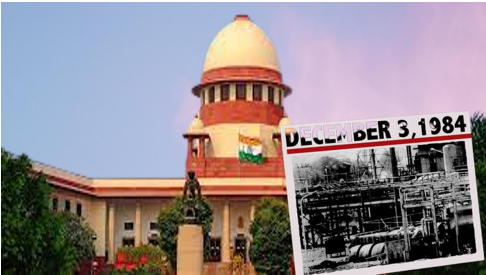
On March 14, the Supreme Court rejected the Centre’s curative petition for more money from Union Carbide Corporations’ successor companies to compensate victims of the 1984 Bhopal gas disaster, which killed 3,000 people and caused significant damage to the environment.
After a break of harmful methyl isocyanate gas from Association Carbide’s processing plant in Bhopal on the mediating evening of December 2 and 3, 1984, that prompted the passings of north of 3,000 individuals and impacted 1.02 lakh more, the Association Carbide Organization (presently possessed by Dow Synthetics) gave a remuneration of USD 470 million (Rs 715 crore in 1989).
in the “Union of India and Other Countries.” v. M/s. Association Carbide Partnership And Others’, the Middle looked for Rs. 7,844 crores in a curative petition it filed in 2010 to receive additional compensation for the Bhopal Gas Tragedy victims. After the dismissal of a review plea against the final conviction, a curative petition may be filed. Its purpose is to guard against process abuse and ensure that justice is not erred.
The demand for additional compensation in a re-examination of the Supreme Court’s 1989 order, in which compensation was determined to be Rs., served as the foundation for the Centre’s claim for a curative petition. 750 billion.
The request likewise looked for a relook at the Court’s requests connecting with methods of instalment and settlement, on grounds that the settlement depended on a wrong gauge of the complete number of passings, wounds, and misfortunes. It also claimed that the damage to the environment was never taken into account, and as a result, it wanted to reopen the settlement using new documents.
The previous number for fatalities and injuries was 3,000, according to the plea. The central government, on the other hand, claimed that there were 5,295 deaths and 5,27,894 injuries.
What decision did the court make today?
The petition that was submitted by the Centre was denied by a Constitution Bench of the Supreme Court headed by Justice SK Kaul and consisting of Justices Sanjiv Khanna, Abhay S Oka, Vikram Nath, and JK Maheshwar. “It is the Union’s own stand that the commissioner has adjudicated all claims to the procedure established by law where the possibility of reimbursement was provided,” the bench stated after reading the final two paragraphs of the main judgment.
SRISHTI BHARDWAJ BCOM L.L.B




0 Comments